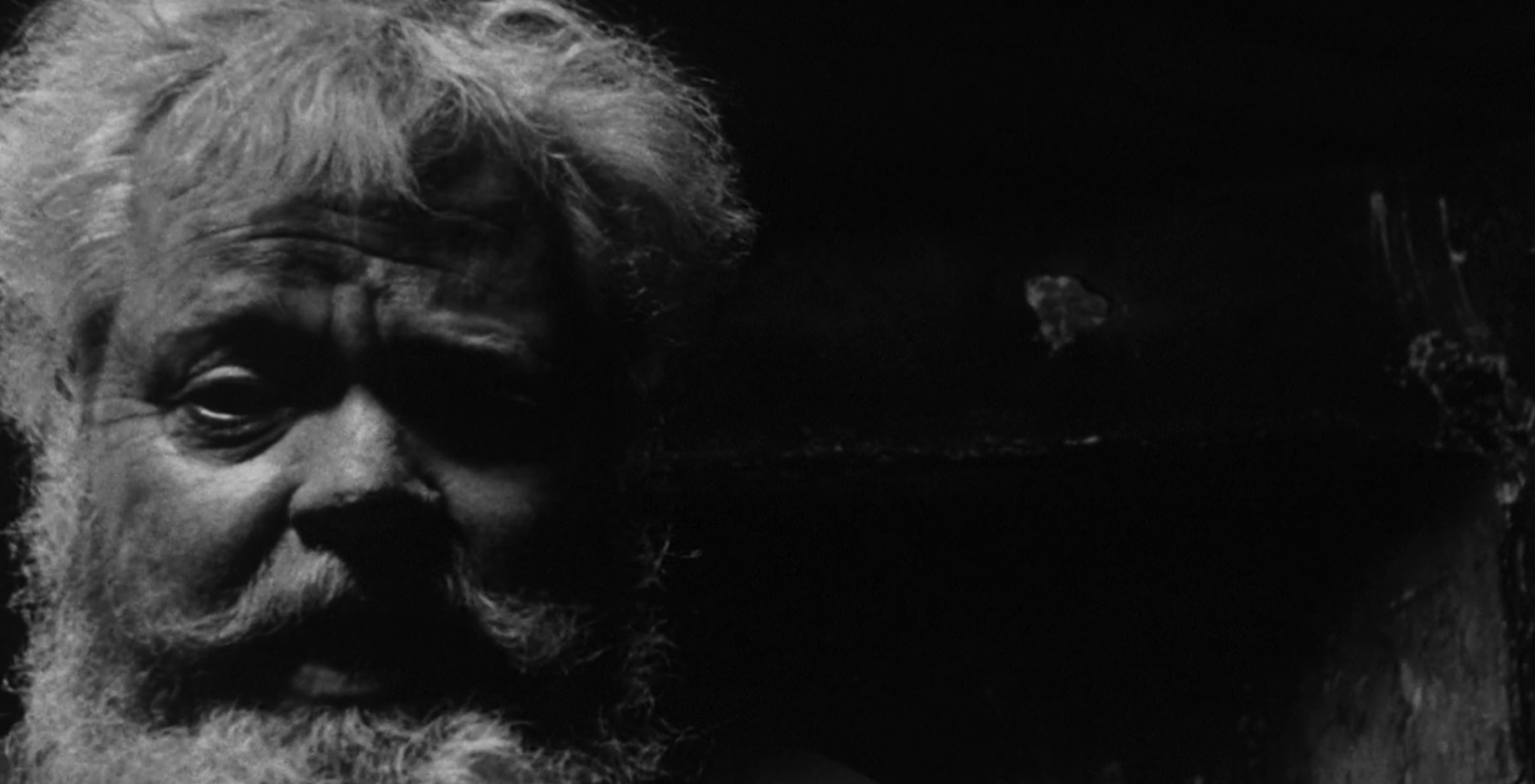Shakespeare wasn’t shy about creating openly queer characters in his work: we all know Mercutio is a screaming queen and that Hamlet and Horatio probably (definitely) fucked. And don’t even get me started on Puck!
But even the ostensibly straight characters in Shakespeare often don’t feel very straight at all. Take, for instance, Sir John Falstaff: knight, rabble-rouser, and all-around loveable asshole. When he’s not at the Boar’s Head tavern having public sex with Doll Tearsheet, he’s thinking about how much he loves Prince Hal, aka the soon-to-be crowned Henry V. How much does he love him, you ask? Well, he compares his adoration of the Prince of Wales to being forced to drink a kind of love potion at one point:
“I have forsworn his company hourly any time this two-and-twenty years, and yet I am bewitched with the rogue’s company. If the rascal hath not given me medicines to make me love him, I’ll be hanged.”
Now I know what you’re thinking: famously Falstaff represents a kind of second father to Prince Hal, since his actual father, King Henry IV, is a total f*ckwad who wishes to swap his son for the much more stereotypically masculine—and aptly named—Hotspur. But the relationship between Falstaff and Prince Hal is a bit more than fatherly: they spend endless hours in the Boar’s Head together, presumably fucking side-by-side and getting up to all manner of horny sh*t.
When it came to creating the character of Falstaff, Shakespeare might have had history as his guide, but he used personal experience to flesh out one of his greatest, saddest characters.
And before you call me crazy, may I remind you that the classic gay indie My Own Private Idaho is based on the “Henry IV/Henry V” cycle? It even uses some of the play’s lines outright. Falstaff is, in that film, recast as Bob Pigeon, a kind of pimp figure who helps River Phoenix and Keanu Reeves’ hustlers stay safe while turning tricks. Reeves, in the Henry V role of Scott Favor, even distinguishes between Pigeon and his “true father” Jack Favor, the mayor of Portland. But Pigeon—and Falstaff—represent a different kind of father, a father you might find within a queer chosen family.

There’s another film that taps into the specific homoerotic energy between Falstaff and Prince Hal: Orson Welles’ famously troubled Chimes at Midnight, a sort of mash-up of all the plays in the cycle that focuses on the relationship between Falstaff and the young king who is bound to betray him. The fact that all the (boring) historical stuff is left largely on the cutting room floor helps isolate the relationship, revealing its true homoerotic undertones. What’s gayer than being an old dude obsessed with a young twink who’s bound to betray you in the end?
Nothing. Literally nothing in the world is gayer than that.
There’s something extra heartbreaking, too, in Hal’s denouncement of his longtime friend. It hurts just as much when Scott Favor leaves his best friend and sometime-lover Mike Waters (Phoenix) for the conventional (sick, sad) world of heterosexuality and politics. Becoming a great king, in Henry’s case—and a great politician, in Favor’s case—means leaving your old friends (and your queerness) behind. And Welles’ film gets at this better than most adaptations, which relegate Falstaff to jester status.
When Prince Hal finally takes the throne, Falstaff is overjoyed by his friend’s new station. He goes to the coronation just to catch a glimpse of the man he loves like a son, only to be told “old man, I know thee not.”
The betrayal kills Falstaff: he can’t bear it, and we’re told after his death that the King’s harsh words “killed his heart.” An apt death for a character who seems to have lived not exclusively, as he often claimed, for the joys of wine, women, and song, but for the tender company of a younger man.
There’s something unbearably sad about a character who dies of a broken heart. As much as Falstaff might love spending time carousing with Doll Tearsheet, there’s a depth to his relationship with Hal that seems to have kept him afloat for years. When it goes, so does his will to live. Sounds pretty gay to me, as someone who has died a thousand times after being betrayed by countless twinks. There’s a grand tradition—not starting with but certainly exemplified by Oscar Wilde—of death by twink, and Falstaff fits in there quite neatly, whether he was intended to or not.
My sense, though, is that he was intended to. Shakespeare was no stranger to the pain of loving beautiful young men: he wrote at least half the sonnets about them. When it came to creating the character of Falstaff, Shakespeare might have had history as his guide, but he used personal experience to flesh out one of his greatest, saddest characters.♦
Don't forget to share:
Help make sure LGBTQ+ stories are being told...
We can't rely on mainstream media to tell our stories. That's why we don't lock our articles behind a paywall. Will you support our mission with a contribution today?
Cancel anytime · Proudly LGBTQ+ owned and operated
Read More in Entertainment
The Latest on INTO
Subscribe to get a twice-weekly dose of queer news, updates, and insights from the INTO team.
in Your Inbox













